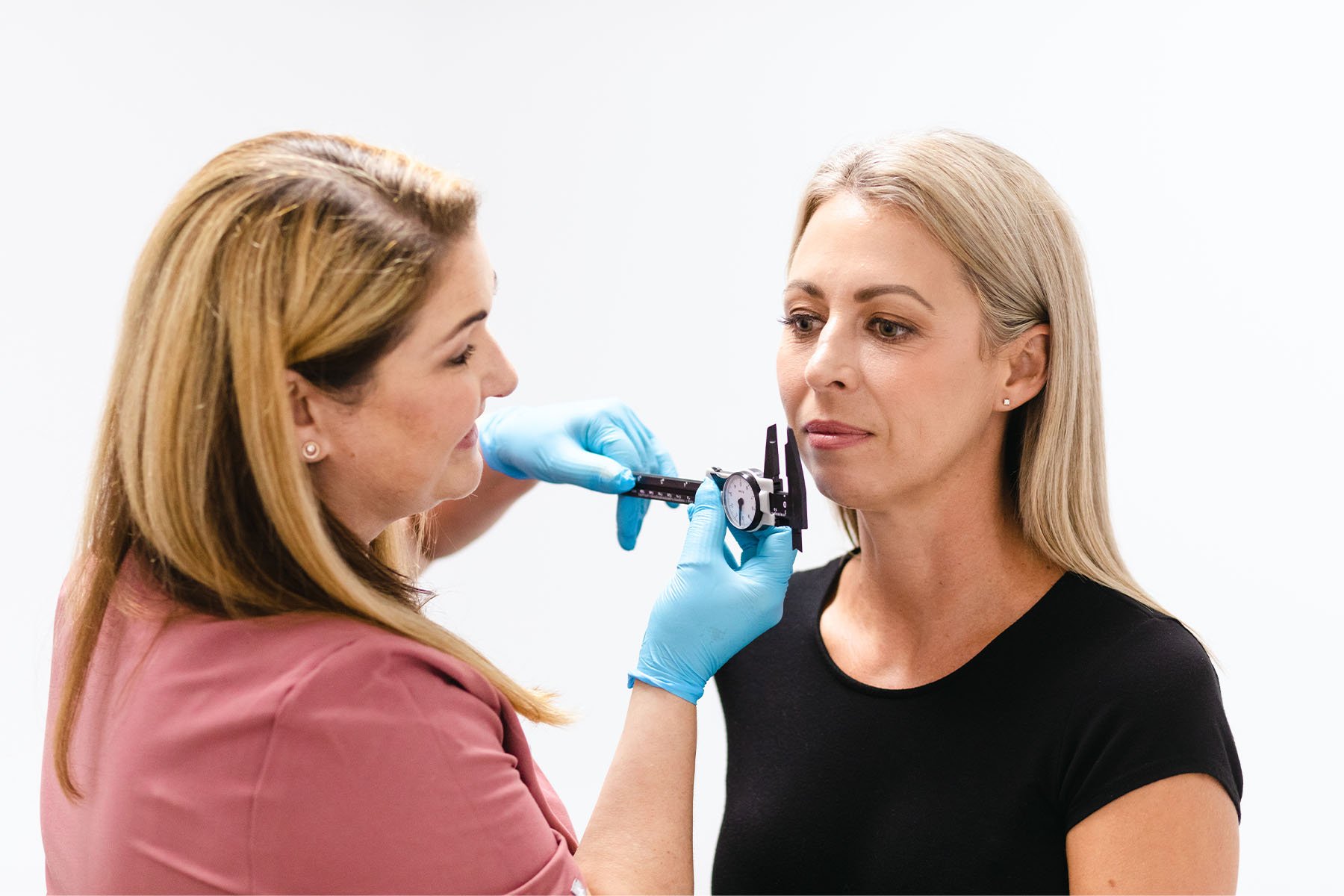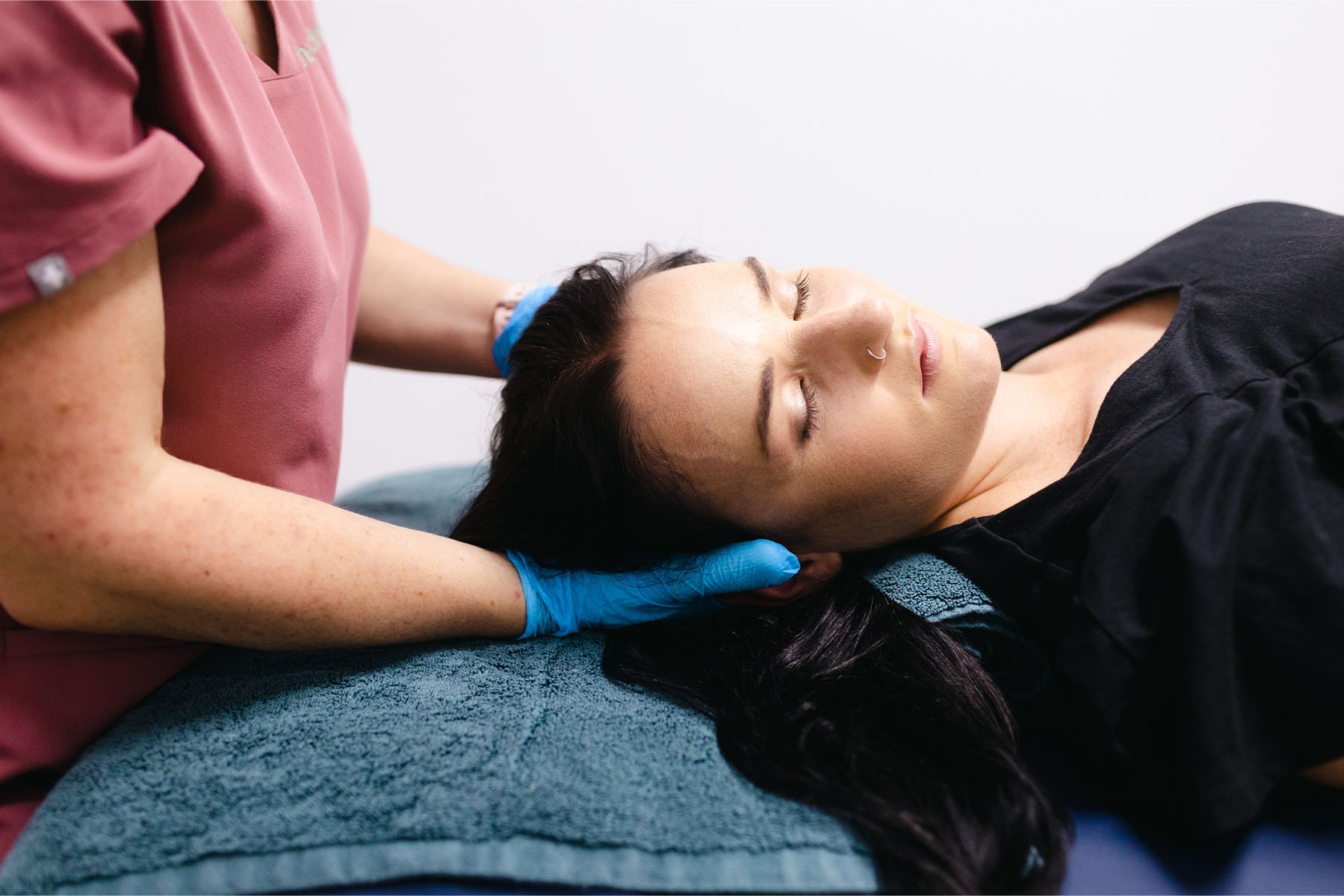
Experts in care
At The Jaw Clinic, our experts use a hands-on approach to treat symptoms and underlying issues to achieve successful, lasting results.
Jaw problems, which can present as numerous symptoms, are often complex and can prove tricky to manage and resolve for the dental and medical profession. This often leaves those suffering from this debilitating condition frustrated and confused.
We are here to help. At The Jaw Clinic, we have highly experienced Physiotherapists who have specialist interests in Jaw treatment, a Clinical Psychologist who is able to address those underlying mental health issues, an in-house Dietitian to advise our clients if they are experiencing difficulty chewing and eating due to their jaw pain and an experienced remedial massage therapist who works closely with our Physiotherapists.
Conditions we treat
-

Jaw Pain
Viewed in simple terms, jaw or TMJ pain is like any other joint pain – it can be coming from the joint itself, associated cartilage and ligaments, overlying muscles, or referring from other areas of the body. It may also be impacted by other factors such as poor posture and joint biomechanics, chronic health conditions or psychological stress.
-

Anxiety & Jaw Pain
Did you know that anxiety and TMJ (temporomandibular joints) may often be related? In fact, untreated anxiety and chronic stress may result in chronic muscle tension and pain in the jaw, mouth, ears, teeth and sinuses.
-

Headaches, Neck Pain & TMJ
The muscles of the jaw and face are connected to the muscles of the head and neck, and when these muscles are tight or strained due to TMD, it can lead to tension headaches. TMD can also cause headaches by referring pain from the jaw to other areas, such as the temples or forehead.
-

Jaw Locking
A locked jaw can be a very painful and frightening issue, and it is important to seek advice immediately to ensure you do not experience prolonged discomfort unnecessarily.
-

Grinding & Clenching
Teeth grinding (known as bruxism) can happen while you are awake or asleep, and is not always something you are aware of. If you have jaw pain, our physiotherapists will assess whether grinding is a factor.
-

Vertigo & TMJ
Your TMJs are positioned directly in front of your ears. When the TMJs are irritated or inflamed, this can extend into the surrounding areas.
-

Hypermobility & TMJ
Hypermobility can be a cause of Jaw or TMJ symptoms. In particular, HMJS (Hypermobility Joint Syndrome) and EDS (Ehler’s- Danos Syndrome).
-

Traumatic Jaw Injuries
After a traumatic injury, you are likely to experience pain, weakness, tightness or stiffness, and this can increase your risk of developing TMJ dysfunction. Our team can help you recover from your injuries, and ensure your TMJ function is correct, so you are less likely to experience pain and dysfunction in the future.








